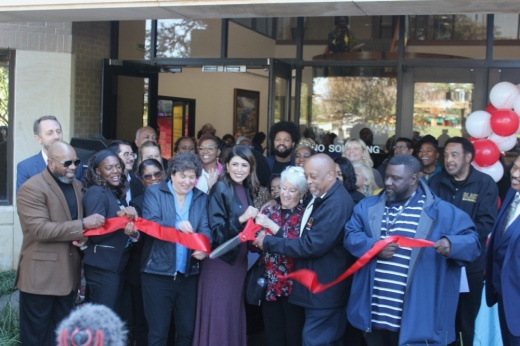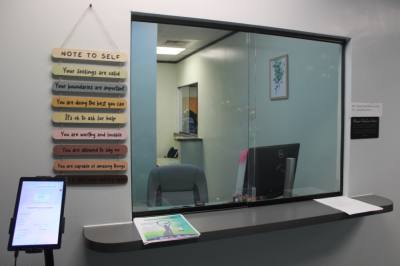The city- and county-backed trauma recovery center, or TRC, is based on a national service model that's already been rolled out at dozens of facilities across the country. Central Texas' first TRC is operated by the nonprofit African American Youth Harvest Foundation.
Read more about Austin's new TRC here.
- Opened Nov. 1
- 6633 Hwy. 290 E., Ste. 300, Austin
- www.harvesttrc.org
Backed by $2 million in startup funding from Austin and Travis County, the Harvest TRC's services are now being offered at no cost to anyone recently affected by incidents of violence and experiencing trauma.
With a staff of around a dozen counselors, social workers, medical students and psychologists, the center provides:
- Intensive clinical case management for assistance finding shelter or medical care, navigating the legal system, or finding a job
- Mental health services, such as crisis intervention and psychotherapy
- Assistance with victim compensation

What they’re saying
Calvin Kelly, the Harvest TRC's chief clinical officer, celebrated the expansion of trauma recovery centers in more than 50 locations across the country and said the Austin facility will provide much-needed services for locals.

City Council Member Vanessa Fuentes, who led the call for TRC funding at City Hall, said the new center will be filling long-known gaps in community care.
"This is about providing services to survivors after they leave the incident, after they leave the hospital. What type of care are they receiving? What services to they get? Now we can point them to a trauma recovery center," she said. "This is a one-stop shop that’s going to make a huge difference. It’s evidence-based, it’s trauma-informed, it’s what Austinites need, and it’s what Austinites deserve.”
County Commissioner Brigid Shea pointed to a need to reduce the impact of violence on those affected.
“When people are victims of violence, it turns their lives upside down," she said. "The trauma recovery center not only helps people survive but thrive, and not just bounce back but bounce forward. That’s the whole point of trauma recovery centers, is to break that cycle of harm that comes from violence and to help people put their lives back together.”

“When you see individuals that have trauma, prayer is good. But what resources will we put together to be able to address it?" he said. "What I like about the resource center [is] that we have ... 30-plus nonprofits in this facility, so when someone comes here and needs something they can get food, they can get clothes, they can see a doctor, they can get legal assistance.”
Council Member Alison Alter billed the TRC as the city's latest step in shifting to a proactive, health-centered response to community violence rather than a more reactive public safety system.
“A public health approach pushes us to look at violence as a disease and to deploy a myriad of tools and strategies to address the root causes of violence. Treating violence this way leads us to ask different questions and structure our interventions differently. The focus shifts to prevention, reduction and healing," she said.








